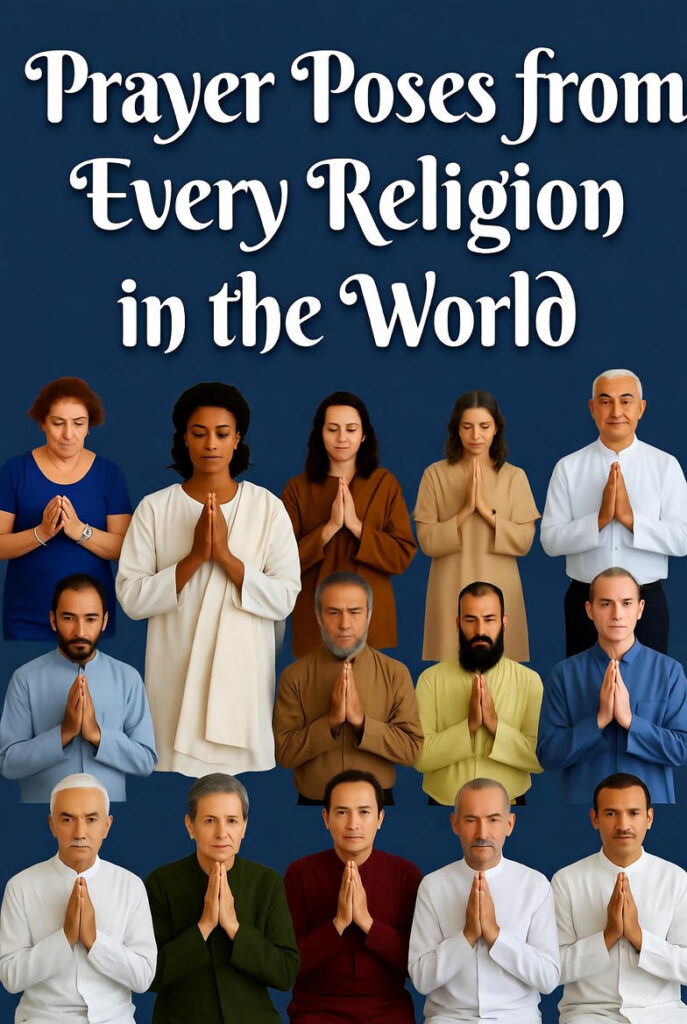
What is Dua (Pray)?
- Dua means talking to Allah (God).
- It is like when you open your heart and share your feelings, wishes, problems, and thanks with Allah.
- Just like a child asks their parents for help or love, we ask Allah because He is the most powerful and most caring.
Why do we make Dua?
- To ask for help – When life feels hard, we can say: “Ya Allah, please make it easy for me.”
- To thank Allah – For health, food, family, and all blessings.
- To get close to Allah – Dua makes our heart soft and reminds us that we are never alone.
- To forgive mistakes – Everyone makes mistakes, and in dua we can say sorry to Allah.
How do we make Dua?
There is no hard rule, but some simple steps help:
- Face Allah with respect – Sit or raise your hands.
- Praise Allah – Start by saying: “Alhamdulillah (All praise to Allah)” and “SubhanAllah (Allah is perfect).”
- Send blessings on the Prophet Muhammad ﷺ – Say: “Allahumma salli ‘ala Muhammad.”
- Ask from your heart – Speak in your own language, with simple words. Allah understands everything.
- End with Ameen – It means, “O Allah, please accept it.”
When can we make Dua?
- Anytime, anywhere.
- While sitting, walking, or even in bed.
- Special times are very powerful, like:
- After prayers (Salah)
- In the last part of the night
- On Fridays
- While fasting
- When it rains
- When parents pray for their children
Important things to remember:
- Allah always hears you. Even if you whisper in your heart, He knows.
- Sometimes Allah gives what you ask right away.
- Sometimes He gives later.
- Sometimes He gives something better instead.
- And sometimes He protects you from harm by not giving what you asked, because only Allah knows what is truly good for you.
👉 In short: Dua is a beautiful conversation with Allah. It is free, it has no time limit, and it always brings peace to the heart.
Why do people in many religions join hands while praying?
If you look at the world’s religions – Islam, Christianity, Hinduism, Buddhism, Sikhism, and others – you’ll notice something common:
👉 People often join their two hands or raise their hands while making prayer (Dua).
It’s like a natural body language of saying:
- “I am small, You are big.”
- “I am empty, please fill me.”
- “I am open to receive.”
What happens in the mind when we join hands?
- Symbol of unity
- The right hand and the left hand are like two sides of life (positive & negative, giving & receiving).
- When we join them, our brain feels a message: “Now I am complete, now I am focused.”
- It calms the mind and removes distractions.
- Creates humility
- Hands are normally used for power (working, holding, fighting).
- But when we join hands, we stop using them and show softness.
- The brain connects this with respect and surrender.
- Activates focus points in the brain
- When fingers and palms touch, nerves send signals to the brain.
- This increases awareness and concentration, like pressing a “switch” that tells your brain: “Now is prayer time.”
How does it connect with Divine energy?
- Scientists say our body has energy flow (like electricity in wires).
- Hands are strong energy points because they have many nerves.
- When you join both hands, energy forms a circle or loop.
- This loop keeps your mind’s energy inside, not leaking out.
- So you feel centered, peaceful, and connected — and people call that feeling divine connection.
Scientific side in very easy words
- Nervous system: Touching palms activates the brain and calms the heart rate.
- Psychology: The gesture signals “I am in prayer mode” which makes the mind more serious and calm.
- Energy flow: Like a battery circuit, joined hands keep inner energy balanced, so you feel more spiritual.
In short
Joining hands in prayer is not just a random tradition. It has:
- Spiritual meaning: showing respect, asking with humility.
- Psychological meaning: helps focus, removes distraction.
- Scientific meaning: balances energy, calms nerves, centers the brain.
That’s why across the world, in so many religions, people naturally put hands together when they want to connect with the Divine. 🌿
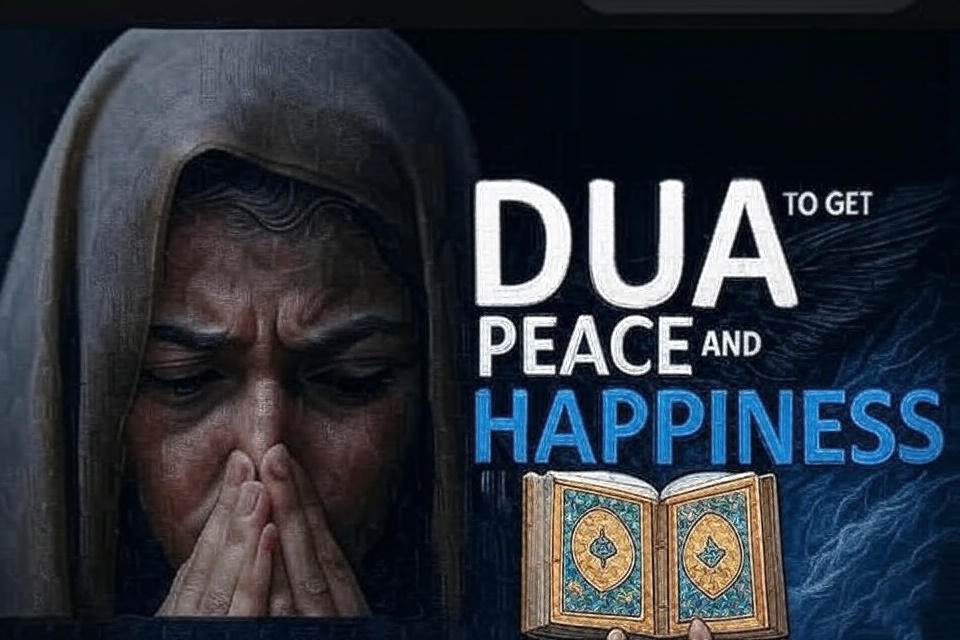
🌿 How Dua Works in the Universe (as Vibes)
When you make Dua (prayer), you are not just moving your lips. Something much bigger happens:
1. Thoughts are Energy
- Every thought in your mind creates a tiny wave of energy.
- Scientists call it brain waves.
- These waves are real — they can be measured with machines (like EEG).
- When you pray with strong feelings, your brain waves become calm, focused, and powerful.
👉 This means: Dua is not just “in the head,” it actually creates real energy signals.
2. Feelings have Vibration
- When you pray with love, hope, or tears, your heart also produces energy.
- Science shows the heart has an electromagnetic field (like a soft magnet) that spreads outside your body.
- So your sincere dua sends out vibes (vibrations) into the universe.
👉 That’s why when someone prays for you with love, sometimes you feel lighter or comforted even without knowing.
3. Words carry Frequency
- When you speak, sound waves travel in the air.
- Even if you whisper, your words have frequency.
- Some scientists believe these frequencies can affect water, plants, and even human emotions.
- Since the human body is mostly water, positive dua words may literally change your inner energy.
4. The Universe Responds
- Just like radio waves travel and connect with the right station, dua vibes also travel.
- Allah created the universe in a way that energy attracts similar energy (this is sometimes called “resonance”).
- So when you send out vibes of faith, patience, and hope, the universe aligns events, people, and opportunities in your favor — at the command of Allah.
👉 Example: You pray for help, and suddenly you meet the right person, or a problem gets solved in a way you didn’t expect.
🌙 Simple Scientific Explanation
- Mind → Sends thoughts as brain waves.
- Heart → Sends emotions as electromagnetic vibes.
- Words → Send sound frequencies.
- Universe → Works like a giant network, where these vibes connect with outcomes.
And above all, Allah (God) is the One who listens and decides. Dua is the tool that makes your energy tune in to His mercy.
🌸 In Short
Dua works in vibes form because:
- Thoughts, feelings, and words create real energy.
- That energy travels like waves in the universe.
- These waves attract goodness, protection, or solutions — if Allah wills.
- That’s why sincere dua changes both you inside and the world around you.
💡 Think of it like this:
When you pray, you are sending Wi-Fi signals from your heart to the heavens. The “router” is your sincerity, and Allah always receives the signal — even when nobody else can.
🌌 Wish vs. Dua – What’s the Difference?
At first, a wish and a dua look the same — both are about wanting something.
But actually, they are very different in energy, focus, and result.
1. Where it comes from
- Wish → Comes only from the mind. Like: “I wish I had money” or “I wish I was lucky.”
- Dua → Comes from mind + heart + soul. It’s not just thinking; it’s connecting with Allah (God).
👉 Science side: A wish is just a thought wave. A dua is thought + emotion + intention + surrender. Stronger signal!
2. Who you talk to
- Wish → You talk to yourself or to the universe blindly.
- Dua → You talk directly to Allah, the Creator who controls the universe.
👉 Example: A wish is like shouting into an empty field. A dua is like calling the King directly on His private phone line.
3. Energy strength
- Wish → Brain waves are weak and scattered, because the mind is always jumping around.
- Dua → Brain waves + heart vibes align. This creates coherent energy (very strong and focused).
👉 Science shows that when you pray deeply, your heart and brain sync together (they call this “heart-brain coherence”), which makes your energy powerful and peaceful.
4. Result and Response
- Wish → May or may not happen, depends on chance and effort.
- Dua → Always reaches Allah. He may give:
- What you asked for.
- Something better.
- Protection from something harmful.
- Or He saves it for the Hereafter as a huge reward.
👉 This means a dua never gets wasted. A wish can fade away.
5. Peace effect
- Wish → Often leaves you restless: “I hope it happens… what if it doesn’t?”
- Dua → Gives instant peace because you hand over the problem to Allah. You feel lighter, like you’re not carrying the burden alone.
🌙 In Very Simple Words
- A wish is like a candle in the wind — it can blow out anytime.
- A dua is like a lighthouse — its light is strong, steady, and guided by Allah.
💡 Science angle in one line:
A wish = random brain energy.
A dua = aligned brain + heart energy directed to Allah, Who responds beyond the limits of science.
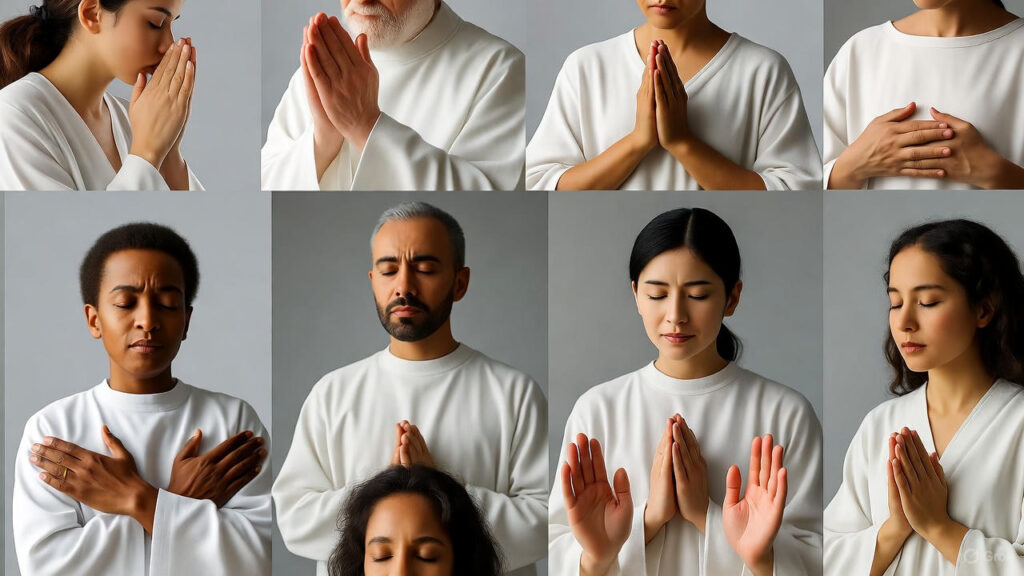
🌿 Spiritual View of Dua
From a spiritual lens, Dua is not only about asking for things (money, health, success).
It’s mainly about:
- Connection
- Dua is like a bridge between the small human heart and the infinite ocean of Allah’s love.
- It’s not just talking; it’s feeling Allah close.
- Surrender
- Spiritually, when you make dua, you are saying:
“Ya Allah, I cannot do everything. I trust You. I give my problem into Your Hands.” - This surrender makes the soul peaceful.
- Spiritually, when you make dua, you are saying:
- Transformation
- Even before your dua is answered, it already changes you.
- It makes you softer, more grateful, more humble.
👉 In short: Spiritually, dua is less about “getting something” and more about becoming someone better.
🌙 Sufi View of Dua
Sufis are people who walk the path of deep love and closeness to Allah.
For them, dua is not only a request but a secret conversation of love.
Here’s how Sufis see and practice dua:
1. Presence of Heart (Hudoor al-Qalb)
- A Sufi doesn’t make dua with just lips.
- They focus the heart fully, as if Allah is right there listening.
- They say: “Don’t just move your tongue, move your soul.”
2. Silence and Tears
- Sometimes Sufis don’t use many words.
- A tear, a sigh, or silence in front of Allah is also dua.
- They believe Allah hears the language of the heart more than the language of the tongue.
3. Zikr + Dua
- Sufis often start dua with Zikr (remembrance of Allah, like repeating “Allah, Allah” or “La ilaha illallah”).
- They say Zikr polishes the heart, and then dua flows like a sweet fragrance.
4. Love over Asking
- Many Sufis say:
“I don’t make dua just for things. My biggest dua is: Ya Allah, let me never be away from You.” - For them, closeness to Allah is the highest prayer.
5. Trust (Tawakkul)
- After dua, a Sufi doesn’t stress about “when will it happen?”
- They leave it completely to Allah, like a child trusts the mother’s care.
✨ Spiritual Example of Sufi Dua
A Sufi might sit in a quiet place, close their eyes, place their hands together or raise them, and whisper:
“Ya Allah, You know what I need better than I do. I am weak, You are strong. I am nothing, You are everything. Don’t give me what I want — give me what brings me closer to You.”
🌸 In Very Simple Words
- Normal dua = Asking for needs.
- Spiritual dua = Feeling Allah’s nearness.
- Sufi dua = Melting in Allah’s love, where the biggest prayer is to never be separated from Him.
💡 A Sufi saying:
“When I raise my hands, I don’t raise them to ask for the world. I raise them so my heart can fly towards Allah.”
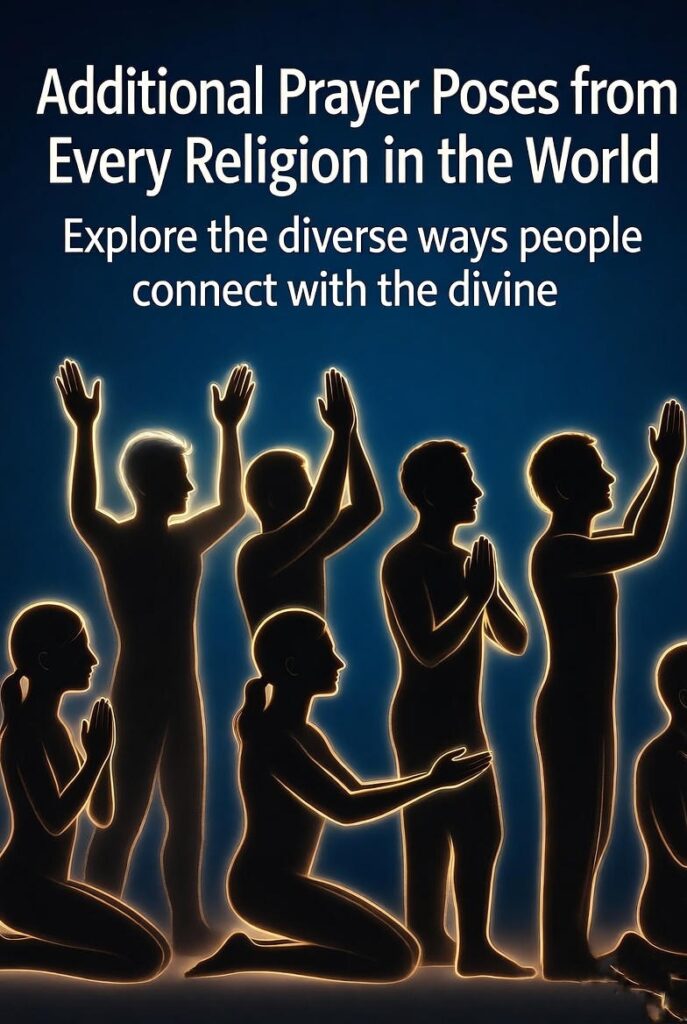
🌿 Practical Sufi Methods of Dua
Sufis believe that before making dua, the heart must be clean, calm, and full of Allah’s remembrance (zikr).
So they have gentle practices that prepare the soul.
1. Breathing with Awareness (Muraqabah Breath)
- Sit quietly.
- Breathe in slowly and think: “Allah is entering my heart with His mercy.”
- Breathe out gently and think: “My sins, worries, and pain are leaving.”
- Repeat for a few minutes.
- This makes the heart soft and ready for dua.
👉 Science side: Slow breathing activates the nervous system that calms the body, so the brain is more focused and peaceful.
2. Zikr Before Dua
- Sufis usually repeat a name of Allah many times, like:
- “Ya Rahman” (O Most Merciful)
- “Ya Latif” (O Most Gentle)
- “Allah, Allah…” softly with each heartbeat.
- They say: “Zikr polishes the heart like a mirror. Then dua reflects beautifully in it.”
3. Silence of the Tongue, Speech of the Heart
- Sometimes, they don’t even use words.
- They sit in silence, close their eyes, and let the heart “speak” to Allah.
- Tears, deep feelings, or even a sigh become their dua.
👉 They believe Allah understands the heart’s language even better than spoken words.
4. Using Poetry or Sacred Words
- Sufis often use poetry (like Rumi’s or Bulleh Shah’s verses) to open their heart before dua.
- Example: They may read lines about Allah’s beauty, then flow into personal dua.
- This helps shift the mind from the world to divine love.
5. Dua with Surrender (Tawakkul)
- After making dua, they don’t worry “When will it happen?”
- They let go completely, trusting Allah’s timing.
- Some even say:
“Ya Allah, if You don’t give me what I ask, then give me something better, or give me Yourself.”
6. Whirling or Gentle Movement (for some Sufi orders)
- Some Sufis, especially in Turkey, use whirling (Sama/Dervish dance).
- They spin slowly with one hand raised (towards heaven) and one hand turned down (towards earth), symbolizing:
- Receiving Allah’s blessings from above.
- Sharing those blessings with the world.
- After this meditation, they sit and make deep dua.
👉 Science side: Spinning and rhythm change brain waves, putting the person in a calm, meditative state (similar to mindfulness).
🌙 A Simple Sufi Dua Routine (Step by Step)
- Sit quietly, close your eyes, and breathe slowly.
- Say Zikr for a few minutes (like “Allah, Allah” with each heartbeat).
- Feel Allah’s presence — imagine He is listening very closely.
- Make your dua from the heart, in your own words.
- End with surrender: “Ameen, I leave this in Your hands, Ya Allah.”
- Sit for a moment in silence, feeling peace.
✨ In Very Easy Words
- Normal dua = Ask, hope, wait.
- Sufi dua = Clean the heart first, fill it with Allah’s name, then let the heart melt in prayer.
For Sufis, dua is less like “shopping list” and more like a love letter to Allah.
💡 Sufi wisdom:
“First remember Allah with your tongue, then with your heart, then forget your own words — and just let Him speak inside you.”
🌿 1. Dua for Peace of Heart
“Ya Allah,
You are the peace, and from You comes peace.
My heart is restless, my mind is heavy,
Please fill me with Your calm light.
Take away my fears,
And let me rest in Your mercy.
Ameen.”
🌙 2. Dua for Forgiveness
“Ya Allah,
I am weak and I make mistakes again and again.
But You are the One who forgives endlessly.
If You don’t forgive me, who else can?
Wash my heart clean,
Like rain washes the earth.
Ameen.”
✨ 3. Dua for Closeness to Allah
“Ya Allah,
Don’t leave me alone even for one moment.
The world distracts me,
But my soul only feels alive when it remembers You.
Give me eyes that see Your signs,
And a heart that never forgets You.
Ameen.”
🌸 4. Dua for Gratitude
“Ya Allah,
Every breath I take is Your gift.
Every step I walk is by Your strength.
I forget to thank You,
But still, You keep blessing me.
Make me someone who is always grateful,
In ease and in hardship.
Ameen.”
🌌 5. Dua for Divine Love (a very Sufi-style prayer)
“Ya Allah,
I don’t only want Your gifts,
I want You.
Fill my heart with Your love,
So that I see You in everything.
Even if the whole world leaves me,
Let me never be far from You.
Ameen.”
🌿 How Sufis make these duas
- They say them with tears or deep feelings.
- Sometimes they repeat softly, like poetry.
- Sometimes they stay silent after speaking, just feeling Allah’s presence.
💡 In simple words:
Sufi duas are not “long lists.” They are short, deep, and full of love. The goal is not only to ask, but to connect and melt into Allah’s mercy.
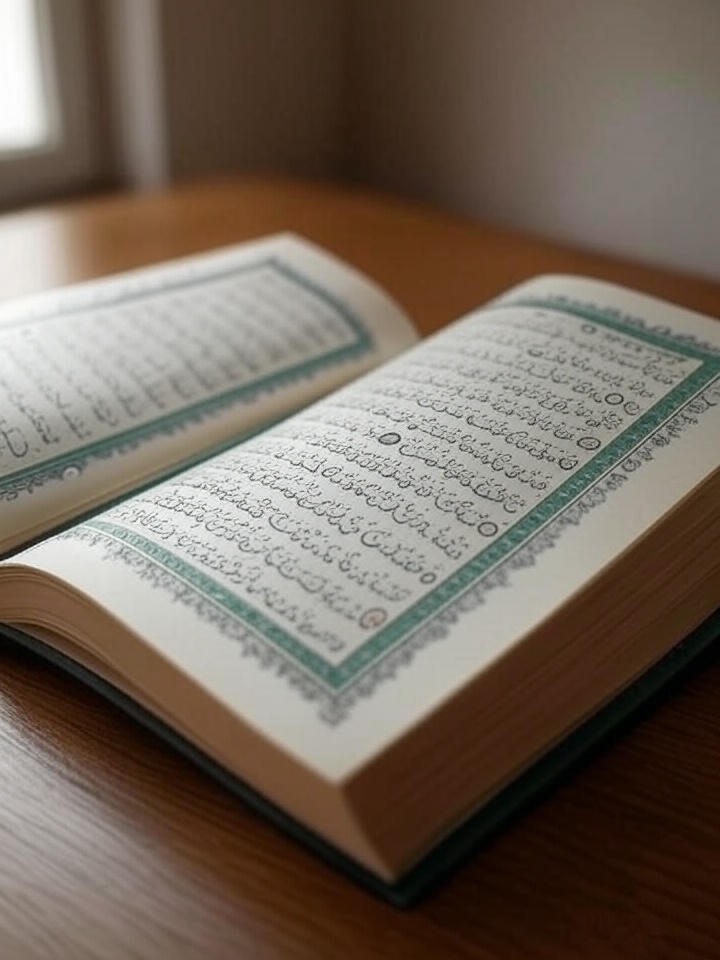
🌿 Qur’anic View about Dua
In the Qur’an, Allah teaches us that:
- Dua is worship itself – It is a sign of humility and love.
- Allah listens to every call – Whether you whisper, cry, or just think in your heart.
- Allah is close – Dua does not need any medium; you can talk to Him directly.
- Allah loves those who ask – Not like humans who get annoyed when you ask too much.
- Dua has no limits – You can ask for small things (like safety while walking) or big things (like Jannah).
🌙 10 Powerful Qur’anic Verses on Dua
1. Allah is Near
Arabic:
وَإِذَا سَأَلَكَ عِبَادِي عَنِّي فَإِنِّي قَرِيبٌۖ أُجِيبُ دَعْوَةَ ٱلدَّاعِ إِذَا دَعَانِ
English:
“And when My servants ask you about Me, indeed I am near. I respond to the call of the caller when he calls upon Me.” (2:186)
Urdu:
“اور جب میرے بندے آپ سے میرے بارے میں سوال کریں، تو میں قریب ہوں۔ میں پکارنے والے کی پکار کا جواب دیتا ہوں جب وہ مجھے پکارتا ہے۔”
2. Call Upon Me
Arabic:
وَقَالَ رَبُّكُمُ ٱدْعُونِيٓ أَسْتَجِبْ لَكُمْ
English:
“And your Lord says: Call upon Me, I will respond to you.” (40:60)
Urdu:
“اور تمہارا رب فرماتا ہے: مجھے پکارو، میں تمہاری دعا قبول کروں گا۔”
3. Allah Changes Situation
Arabic:
أَمَّن يُجِيبُ ٱلْمُضْطَرَّ إِذَا دَعَاهُ وَيَكْشِفُ ٱلسُّوٓءَ
English:
“Is He [not best] who responds to the desperate one when he calls upon Him and removes the evil?” (27:62)
Urdu:
“کیا وہ (اللہ) بہتر نہیں ہے جو بےکس کی دعا کو قبول کرتا ہے جب وہ اسے پکارتا ہے اور مصیبت کو دور کرتا ہے؟”
4. Allah Hears the Supplicant
Arabic:
إِنَّ رَبِّي قَرِيبٌۭ مُّجِيبٌۭ
English:
“Indeed, my Lord is near and responsive.” (11:61)
Urdu:
“بے شک میرا رب قریب ہے اور دعا قبول کرنے والا ہے۔”
5. Remember Allah in Hardship and Ease
Arabic:
فَٱذْكُرُونِيٓ أَذْكُرْكُمْ
English:
“So remember Me; I will remember you.” (2:152)
Urdu:
“پس تم میرا ذکر کرو، میں تمہیں یاد کروں گا۔”
6. Allah Answers Those Who Believe
Arabic:
فَٱسْتَجَابَ لَهُمْ رَبُّهُمْ
English:
“So their Lord answered them…” (3:195)
Urdu:
“تو ان کے رب نے ان کی دعا قبول کر لی…”
7. Dua of Prophet Yunus (عليه السلام)
Arabic:
لَآ إِلَـٰهَ إِلَّآ أَنتَ سُبْحَـٰنَكَ إِنِّي كُنتُ مِنَ ٱلظَّـٰلِمِينَ
English:
“There is no deity except You; glory be to You. Indeed, I was of the wrongdoers.” (21:87)
Urdu:
“تیرے سوا کوئی معبود نہیں، تُو پاک ہے۔ بے شک میں ظالموں میں سے ہوں۔”
8. Dua of Prophet Musa (عليه السلام)
Arabic:
رَبِّ ٱشْرَحْ لِي صَدْرِي * وَيَسِّرْ لِيٓ أَمْرِي
English:
“My Lord, expand for me my chest, and ease for me my task.” (20:25–26)
Urdu:
“اے میرے رب! میرا سینہ کھول دے، اور میرا کام آسان کر دے۔”
9. Dua for Parents
Arabic:
رَّبِّ ٱرْحَمْهُمَا كَمَا رَبَّيَانِي صَغِيرًۭا
English:
“My Lord, have mercy upon them (my parents) as they brought me up when I was small.” (17:24)
Urdu:
“اے میرے رب! ان پر رحم فرما جیسے انہوں نے بچپن میں میری پرورش کی۔”
10. Allah’s Promise
Arabic:
إِن تَنصُرُوا۟ ٱللَّهَ يَنصُرْكُمْ وَيُثَبِّتْ أَقْدَامَكُمْ
English:
“If you support Allah, He will support you and plant firmly your feet.” (47:7)
Urdu:
“اگر تم اللہ کی مدد کرو گے تو وہ تمہاری مدد کرے گا اور تمہارے قدم جما دے گا۔”
🌸 How to Recite These Verses in Dua
- Clean intention – Sit with sincerity, believe Allah is listening.
- Start with praise – Say: Alhamdulillah, SubhanAllah, Allahu Akbar.
- Send blessings – Say: Allahumma salli ‘ala Muhammad wa ‘ala aali Muhammad.
- Recite verse slowly – From the Qur’an, with meaning in your heart.
- Repeat 3 times – Many scholars recommend repeating powerful duas at least 3 times.
- Add your own words – After the verse, talk to Allah in your own language.
- End with Ameen – Say Ameen with full hope.
💡 Tip: You don’t need to recite all 10 at once. Choose 1–2 daily, feel the meaning deeply, and then add your personal dua.
🌞 Morning Dua Routine (Start of the Day)
👉 1. Wake up with gratitude
Say softly:
ٱلْـحَمْدُ لِلَّهِ ٱلَّذِيٓ أَحْيَانَا بَعْدَ مَآ أَمَاتَنَا وَإِلَيْهِ ٱلنُّشُورُ
“All praise is for Allah who gave us life after death (sleep), and to Him is the return.”
👉 2. Dua for ease in work (Prophet Musa’s dua)
رَبِّ ٱشْرَحْ لِي صَدْرِي • وَيَسِّرْ لِيٓ أَمْرِي (20:25–26)
“My Lord, open my chest for me and make my task easy for me.”
- Recite 3 times before starting work/study.
👉 3. Remember Allah is close
وَإِذَا سَأَلَكَ عِبَادِي عَنِّي فَإِنِّي قَرِيبٌۖ (2:186)
“I am near, I respond to the caller when he calls upon Me.”
- Say this slowly, then add your own personal dua for the day.
👉 4. Dua for parents
رَّبِّ ٱرْحَمْهُمَا كَمَا رَبَّيَانِي صَغِيرًۭا (17:24)
“My Lord, have mercy upon my parents as they raised me when I was small.”
- Recite once daily, even if parents have passed away.
🌙 Night Dua Routine (End of the Day)
👉 1. Ask for forgiveness (Prophet Yunus’s dua)
لَآ إِلَـٰهَ إِلَّآ أَنتَ سُبْحَـٰنَكَ إِنِّي كُنتُ مِنَ ٱلظَّـٰلِمِينَ (21:87)
“There is no god but You, Glory be to You. Truly, I was among the wrongdoers.”
- Recite 3 times before sleep to wash away sins.
👉 2. Gratitude for blessings
فَٱذْكُرُونِيٓ أَذْكُرْكُمْ (2:152)
“So remember Me, and I will remember you.”
- Sit quietly for 1–2 minutes, think of 3 things Allah gave you today, say Alhamdulillah.
👉 3. Ask for peace
إِنَّ رَبِّي قَرِيبٌۭ مُّجِيبٌۭ (11:61)
“Indeed, my Lord is near and responsive.”
- Recite slowly, then ask Allah for a peaceful sleep and protection from worries.
👉 4. End with Allah’s promise
إِن تَنصُرُوا۟ ٱللَّهَ يَنصُرْكُمْ (47:7)
“If you help Allah, He will help you.”
- Say it with hope, then surrender the day’s struggles to Allah before closing your eyes.
🌿 Tips to Make Routine Easy
- Don’t rush: even if you only do 1 verse in the morning and 1 at night, it’s powerful.
- Focus on meaning, not just words. Feel that Allah is listening.
- Make it part of habit — after Fajr & before sleep are best times.
- Add your own words after Qur’anic duas — Allah loves your personal voice.
✨ In short: Morning duas give you energy and hope for the day, and night duas clean your heart, give peace, and protect your soul.
🌿 What are the 99 Names of Allah?
- Allah has many beautiful names, each showing a different quality of His perfection.
- These names are called Asma-ul-Husna (The Most Beautiful Names).
- Example: Ar-Rahman (The Most Merciful), Al-Ghafoor (The Forgiving), Al-Qadir (The All-Powerful).
- They are not “just names” — they are doors to Allah’s mercy.
👉 Prophet Muhammad ﷺ said:
“Allah has 99 names; whoever memorizes them and lives by them will enter Paradise.” (Hadith – Bukhari & Muslim)
🌙 Connection Between Dua and Allah’s Names
When you make dua, if you call Allah by the right name connected to your need, the dua becomes more powerful.
- Asking for forgiveness? Use: Ya Ghafoor, Ya Tawwab (O Forgiving, O Acceptor of Repentance).
- Asking for mercy? Use: Ya Rahman, Ya Raheem (O Most Merciful, O Most Compassionate).
- Asking for health? Use: Ya Shaafi (O Healer).
- Asking for rizq (sustenance)? Use: Ya Razzaq (O Provider).
- Asking for protection? Use: Ya Hafeez (O Protector).
This shows Allah that you truly know Him, love Him, and trust His qualities.
✨ How to Use 99 Names in Dua (Easy Steps)
- Start with praise: “Alhamdulillahi Rabbil Aalameen.”
- Call Allah by a Name connected to your need.
Example: “Ya Rahman, Ya Raheem, please have mercy on me.” - Make your request in your own words.
- End with Ameen and trust Allah.
🌸 Examples of Dua with Allah’s Names
- For forgiveness:
“Ya Ghafoor, Ya Raheem, forgive me and cover my mistakes.” - For peace:
“Ya Salaam, fill my heart with peace and remove my worries.” - For health:
“Ya Shaafi, heal me and those I love from all illness.” - For strength:
“Ya Qawiyy, give me strength to face my struggles.” - For guidance:
“Ya Hadi, guide me to the straight path.”
🌌 Why the 99 Names are Powerful in Dua
- They remind us of Allah’s greatness.
- They increase our love and connection with Him.
- They make our dua more specific and heartfelt.
- They bring peace — just saying them calms the soul.
🌿 In Very Simple Words
The 99 Names of Allah are like keys. Each name opens a special door of mercy.
When you use these names in dua, it’s like pressing the right button on a phone — the connection becomes stronger and clearer.
💡 Tip: Start small. Learn 2–3 names each week, use them in your dua. Slowly, you will feel your relationship with Allah becoming deeper and sweeter.
🌿 Prophet Muhammad ﷺ Teachings About Dua
The Prophet ﷺ loved dua and taught us many beautiful lessons about it. Here are some simple points:
- Dua is worship – He said: “Dua is the essence of worship.” (Tirmidhi)
- Allah loves those who ask – Humans get tired when you ask too much, but Allah loves it when you keep asking.
- No dua is wasted – Either Allah gives what you asked, gives something better, or saves it for the Hereafter.
- Best times for dua – The Prophet ﷺ taught that dua is powerful at special times, like:
- In sujood (prostration)
- During the last third of the night
- Between the adhan and iqamah
- While fasting, especially before iftar
- On Fridays
- Ask with certainty – He said: “Call upon Allah while being certain that He will answer you.” (Tirmidhi)
- Raise your hands – He often raised his hands when making dua, showing humility.
- Start with praise and blessings – Begin by praising Allah and sending blessings on the Prophet ﷺ before asking.
👉 In short: Prophet ﷺ taught that dua is a direct, loving, and hopeful conversation with Allah.
🌙 10 Powerful Duas from Prophet Muhammad ﷺ
1. Dua for Guidance and Steadiness
Arabic:
يَا مُقَلِّبَ الْقُلُوبِ ثَبِّتْ قَلْبِي عَلَى دِينِكَ
English:
“O Turner of the hearts, keep my heart firm upon Your religion.”
Urdu:
“اے دلوں کو پھیرنے والے، میرے دل کو اپنے دین پر ثابت قدم رکھ۔”
2. Dua for Forgiveness
Arabic:
اللَّهُمَّ اغْفِرْ لِي، وَارْحَمْنِي، وَاهْدِنِي، وَعَافِنِي، وَارْزُقْنِي
English:
“O Allah, forgive me, have mercy on me, guide me, grant me health, and provide for me.”
Urdu:
“اے اللہ! مجھے بخش دے، مجھ پر رحم فرما، مجھے ہدایت دے، مجھے عافیت دے اور مجھے رزق عطا فرما۔”
3. Dua for Protection from Harm
Arabic:
بِسْمِ اللَّهِ الَّذِي لَا يَضُرُّ مَعَ اسْمِهِ شَيْءٌ فِي الْأَرْضِ وَلَا فِي السَّمَاءِ وَهُوَ السَّمِيعُ الْعَلِيمُ
English:
“In the name of Allah, with whose name nothing in the heavens or earth can harm, and He is the All-Hearing, All-Knowing.”
Urdu:
“اللہ کے نام سے، جس کے نام کے ساتھ زمین و آسمان کی کوئی چیز نقصان نہیں پہنچا سکتی، اور وہ سب سننے والا، سب جاننے والا ہے۔”
4. Dua for Relief from Worry
Arabic:
اللَّهُمَّ إِنِّي أَعُوذُ بِكَ مِنَ الْهَمِّ وَالْحَزَنِ
English:
“O Allah, I seek refuge in You from worry and sadness.”
Urdu:
“اے اللہ! میں تجھ سے پناہ مانگتا ہوں غم اور پریشانی سے۔”
5. Dua for Parents
Arabic:
اللَّهُمَّ اغْفِرْ لِي وَلِوَالِدَيَّ، وَارْحَمْهُمَا كَمَا رَبَّيَانِي صَغِيرًا
English:
“O Allah, forgive me and my parents, and have mercy on them as they raised me when I was small.”
Urdu:
“اے اللہ! مجھے اور میرے والدین کو بخش دے، اور ان پر رحم فرما جیسے انہوں نے بچپن میں میری پرورش کی۔”
6. Dua for Light in Life
Arabic:
اللَّهُمَّ اجْعَلْ فِي قَلْبِي نُورًا، وَفِي بَصَرِي نُورًا، وَفِي سَمْعِي نُورًا
English:
“O Allah, place light in my heart, light in my sight, and light in my hearing.”
Urdu:
“اے اللہ! میرے دل میں نور رکھ، میری آنکھوں میں نور رکھ، اور میرے کانوں میں نور رکھ۔”
7. Dua for Protection from Evil
Arabic:
أَعُوذُ بِكَلِمَاتِ اللَّهِ التَّامَّاتِ مِنْ شَرِّ مَا خَلَقَ
English:
“I seek refuge in the perfect words of Allah from the evil of what He created.”
Urdu:
“میں اللہ کے مکمل کلمات کی پناہ مانگتا ہوں، اس کی مخلوق کے شر سے۔”
8. Dua for Knowledge
Arabic:
رَبِّ زِدْنِي عِلْمًا
English:
“My Lord, increase me in knowledge.”
Urdu:
“اے میرے رب! میرے علم میں اضافہ فرما۔”
9. Dua for Good in Life & Hereafter
Arabic:
رَبَّنَا آتِنَا فِي الدُّنْيَا حَسَنَةً وَفِي الْآخِرَةِ حَسَنَةً وَقِنَا عَذَابَ النَّارِ
English:
“Our Lord, give us in this world good and in the Hereafter good, and protect us from the punishment of the Fire.”
Urdu:
“اے ہمارے رب! ہمیں دنیا میں بھی بھلائی دے اور آخرت میں بھی بھلائی دے، اور ہمیں آگ کے عذاب سے بچا۔”
10. Dua for Entering Paradise
Arabic:
اللَّهُمَّ اجْعَلْنِي مِنْ أَهْلِ الْجَنَّةِ
English:
“O Allah, make me among the people of Paradise.”
Urdu:
“اے اللہ! مجھے جنت والوں میں شامل فرما۔”
🌸 How to Recite These Duas
- Begin with praise of Allah: say Alhamdulillah, SubhanAllah, Allahu Akbar.
- Send blessings on Prophet ﷺ: say Allahumma salli ‘ala Muhammad wa ‘ala aali Muhammad.
- Recite the dua slowly, with understanding.
- Repeat 3 times with focus.
- Add your own words from the heart after the dua.
- End with Ameen and full trust in Allah.
✨ In short:
Prophet Muhammad ﷺ showed us that dua is love, surrender, and hope. His own duas are simple, short, but very powerful — they cover everything from forgiveness, guidance, and protection, to love, light, and Jannah.
🌞 Morning Sunnah Dua Routine
1. Upon Waking Up
Arabic:
الْـحَمْدُ لِلَّهِ الَّذِي أَحْيَانَا بَعْدَ مَا أَمَاتَنَا وَإِلَيْهِ النُّشُورُ
English:
“All praise is for Allah who gave us life after causing us to die (sleep), and to Him is the return.”
2. After Fajr (for guidance & strength)
Arabic:
يَا مُقَلِّبَ الْقُلُوبِ ثَبِّتْ قَلْبِي عَلَى دِينِكَ
English:
“O Turner of hearts, keep my heart firm on Your religion.”
3. Leaving Home (for protection)
Arabic:
بِسْمِ اللَّهِ، تَوَكَّلْتُ عَلَى اللَّهِ، وَلَا حَوْلَ وَلَا قُوَّةَ إِلَّا بِاللَّهِ
English:
“In the name of Allah, I place my trust in Allah, and there is no power nor strength except with Allah.”
🌙 Daytime Sunnah Dua Routine
4. Before Eating
Arabic:
بِسْمِ اللَّهِ
English:
“In the name of Allah.”
5. After Eating
Arabic:
الْـحَمْدُ لِلَّهِ الَّذِي أَطْعَمَنِي هَذَا، وَرَزَقَنِيهِ مِنْ غَيْرِ حَوْلٍ مِنِّي وَلَا قُوَّةٍ
English:
“All praise is for Allah who fed me this and provided it for me without any power or strength from myself.”
6. When Feeling Worried or Stressed
Arabic:
اللَّهُمَّ إِنِّي أَعُوذُ بِكَ مِنَ الْهَمِّ وَالْحَزَنِ
English:
“O Allah, I seek refuge in You from worry and sadness.”
🌙 Evening & Night Sunnah Dua Routine
7. Before Maghrib / Sunset (for forgiveness)
Arabic:
اللَّهُمَّ اغْفِرْ لِي، وَارْحَمْنِي، وَاهْدِنِي، وَعَافِنِي، وَارْزُقْنِي
English:
“O Allah, forgive me, have mercy on me, guide me, grant me health, and provide for me.”
8. Before Sleeping (for protection)
Arabic:
بِاسْمِكَ اللَّهُمَّ أَمُوتُ وَأَحْيَا
English:
“In Your name, O Allah, I die and I live.”
9. Dua of Prophet Yunus (for forgiveness of sins)
Arabic:
لَا إِلَـٰهَ إِلَّا أَنتَ سُبْحَانَكَ إِنِّي كُنتُ مِنَ الظَّالِمِينَ
English:
“There is no god but You; Glory be to You. Truly, I was among the wrongdoers.”
10. Dua for Paradise (end the day with hope)
Arabic:
اللَّهُمَّ اجْعَلْنِي مِنْ أَهْلِ الْجَنَّةِ
English:
“O Allah, make me among the people of Paradise.”
🌸 How to Recite Daily Sunnah Duas
- Be sincere – Believe Allah is listening.
- Raise hands – When you can, raise your hands in humility.
- Start with praise – Say: Alhamdulillah, SubhanAllah, Allahu Akbar.
- Send blessings – Allahumma salli ‘ala Muhammad wa ‘ala aali Muhammad.
- Recite slowly with meaning – Not just words; feel them.
- Repeat 3 times – The Prophet ﷺ often repeated duas.
- End with Ameen – Full hope and trust in Allah.
✨ In very simple words:
- Morning duas = give you strength and protection.
- Daytime duas = remind you of Allah while eating, working, or feeling stressed.
- Night duas = clean your sins, protect you in sleep, and give you hope for Jannah.
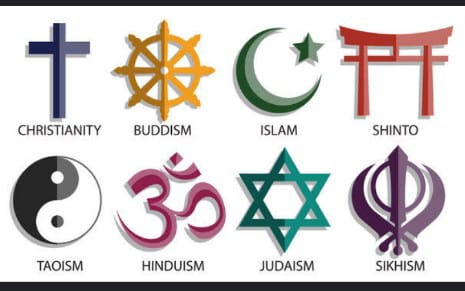
🌍 Prayer (Dua) in Other Religions
Even though the words are different, all religions believe in talking to God (or the Divine) through prayer.
It shows that prayer is a natural need of the human soul.
✝️ 1. Christianity
- Christians call it “prayer.”
- They raise their hands, join palms, or kneel while praying.
- They ask God (sometimes through Jesus or saints) for forgiveness, health, peace, and guidance.
- The Lord’s Prayer is very famous: “Our Father in Heaven, hallowed be Your name…”
- Many Christians also pray silently, from the heart, just like dua.
👉 Connection with Islam: Christians believe prayer brings them closer to God and gives peace — same as Muslims believe with dua.
✡️ 2. Judaism
- Jews call it “Tefillah.”
- They pray 3 times a day (morning, afternoon, evening).
- They often face Jerusalem while praying.
- Their prayers include praise of God, thanks, and requests for mercy.
- They also use Psalms (Zabur of Prophet Dawood عليه السلام) as prayers.
👉 Connection with Islam: Jews believe prayer keeps them connected to God’s law, just as Muslims use dua to stay close to Allah’s mercy.
🕉️ 3. Hinduism
- Hindus pray through mantras (special words or sounds).
- They join their hands (Namaste position) and bow in front of God’s idols or images.
- Prayer includes chanting, singing hymns, and sometimes meditation.
- They believe prayer brings peace, removes bad karma, and connects the soul with the divine.
👉 Connection with Islam: Joining hands in prayer is like Muslims raising hands — both are gestures of humility before God.
☸️ 4. Buddhism
- Buddhists do not pray to a “God” in the same way, but they pray/meditate for peace, compassion, and enlightenment.
- They use mantras and meditation to calm the mind.
- Prayer beads (similar to Muslim tasbih) are used to repeat sacred words.
- Their goal is inner peace and kindness to all beings.
👉 Connection with Islam: Buddhists focus on inner calm through prayer, and Muslims also find peace of heart through dua and zikr.
🕎 5. Sikhism
- Sikhs pray by reading from their holy book (Guru Granth Sahib).
- Their main prayer is Ardas — asking God (Waheguru) for strength, forgiveness, and blessings.
- They also chant God’s name repeatedly (Simran), like zikr in Islam.
- Prayer is seen as a way to purify the heart and serve humanity.
👉 Connection with Islam: Both Sikhs and Muslims believe prayer should make you humble, kind, and closer to God.
🌸 What All Religions Agree About Prayer
- Prayer is talking to the Divine.
- It can be with words, silence, or even tears.
- It brings peace to the heart.
- It makes people feel less alone.
- It is a sign of humility and gratitude.
🌿 Spiritual Understanding
- Islam teaches that dua is direct to Allah, with no middle person.
- Other religions may have different methods (through saints, idols, or chants), but the core human feeling is the same:
👉 “I am weak, O Divine Power, please help me, forgive me, guide me, and give me peace.”
✨ In very simple words:
Prayer (dua) is a universal language of the soul. Every religion has its own words and styles, but the heart behind it is the same — humans calling to the Divine for love, help, and peace.
🌍 Prayer in Different Religions
☪️ Islam (Dua / Salah)
- How: Raise hands, speak directly to Allah, also pray in sujood.
- Ask For: Forgiveness, guidance, mercy, health, rizq, Jannah.
- Special Point: Always direct to Allah, no middle person.
✝️ Christianity (Prayer)
- How: Kneeling, joining hands, raising arms; sometimes through Jesus or saints.
- Ask For: Forgiveness, blessings, healing, peace, salvation.
- Special Point: Same heart as dua — talking to God with love and need.
✡️ Judaism (Tefillah)
- How: Pray 3 times daily, often facing Jerusalem; recite Torah & Psalms.
- Ask For: Mercy, forgiveness, blessings, protection.
- Special Point: Similar to Islam’s daily salah + duas for guidance.
🕉️ Hinduism (Mantra / Pooja)
- How: Join hands (Namaste), chant mantras, sing hymns, bow before idols.
- Ask For: Peace, health, removal of bad karma, prosperity.
- Special Point: Humble gesture like Muslims raising hands.
☸️ Buddhism (Mantras / Meditation)
- How: Sit quietly, chant, use prayer beads, focus on breath.
- Ask For: Inner peace, compassion, wisdom, kindness.
- Special Point: Similar to Islamic zikr (repetition for inner calm).
🕎 Sikhism (Ardas / Simran)
- How: Standing prayer, recite Guru Granth Sahib, chant “Waheguru.”
- Ask For: Strength, forgiveness, blessings, ability to serve humanity.
- Special Point: Very close to zikr + dua in Islam — remembering God’s name.
🌿 Key Takeaways (Easy Scroll)
✅ All faiths believe prayer is powerful.
✅ Different styles, same heart connection.
✅ Common requests: forgiveness, peace, blessings, health.
✅ Islam’s special point: Dua is always direct to Allah — no idols, no middle person.
✨ In simple words:
Prayer is like Wi-Fi of the soul — every religion has its own password, but everyone wants to connect to the Divine.
🌍 Conclusion – A Message to All Humanity
Prayer (Dua) is not just words.
It is the cry of the soul. It is when a human being admits:
👉 “I am weak, and You, O Creator, are strong.”
Whether you are Muslim, Christian, Jew, Hindu, Buddhist, Sikh, or even someone still searching — deep inside, your heart has one voice:
👉 “O Divine Power, help me, guide me, forgive me, give me peace.”
This voice is the same in every language, in every religion, in every corner of the earth.
It proves that humanity is one family, created by One God.
Today, the world is full of noise — wars, hate, greed, divisions. But prayer is the silent weapon that can heal hearts and unite people.
When you raise your hands, when you bow your head, when your tears fall — the energy of love and hope spreads into the universe.
Remember:
- Kings may ignore you.
- The world may reject you.
- But Allah never ignores a heart that calls on Him.
So, O humanity — wake up! Don’t let pride stop you. Don’t let hate divide you. Return to your Creator with prayer.
One prayer can change a heart.
One heart can change a family.
One family can change a society.
And one society can change the world.
👉 Dua is the bridge between the dust of the earth and the light of the heavens.
So pray, cry, whisper, shout — but never stop calling your Lord.
Because the day your heart stops praying is the day your soul begins dying.
✨ Written with love, as a message for all humanity — by Shoaib Nasir

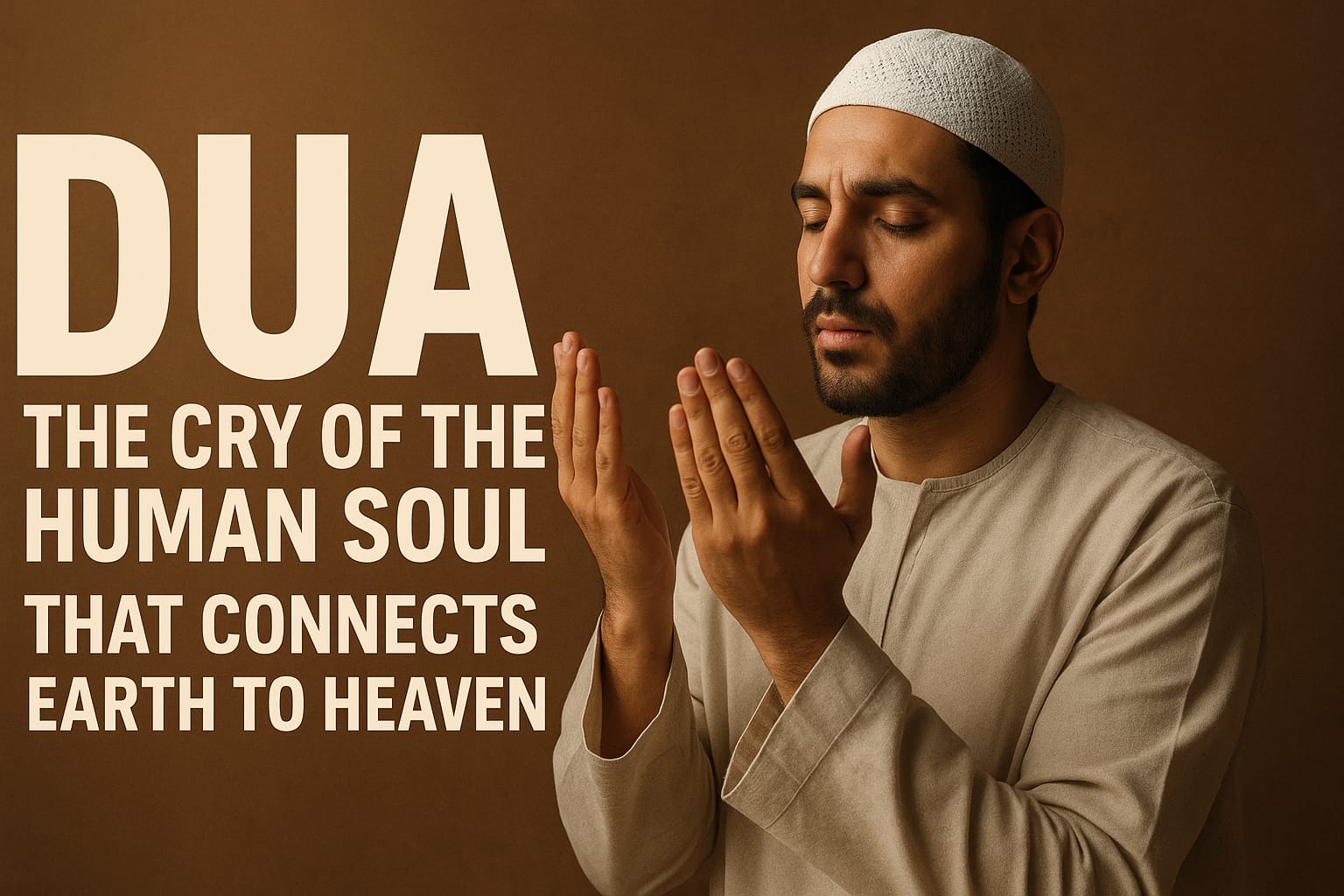
Leave a Reply